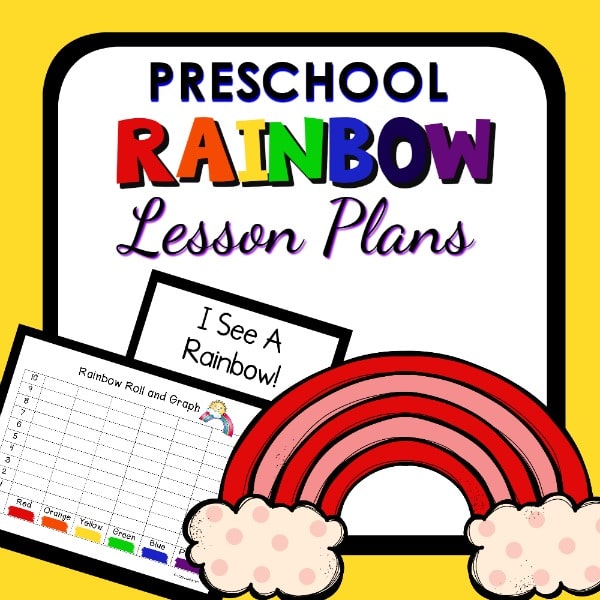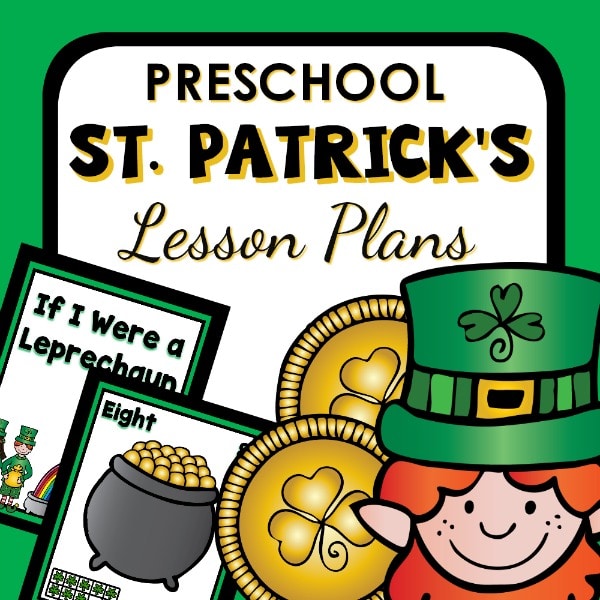Below you’ll find out how to set up a scented rainbow science activity the kids will want to do again and again (and again!). You can teach the children about chemical reactions with just a few simple materials.
Be sure to add this to your list of rainbow experiment ideas once you’re done.
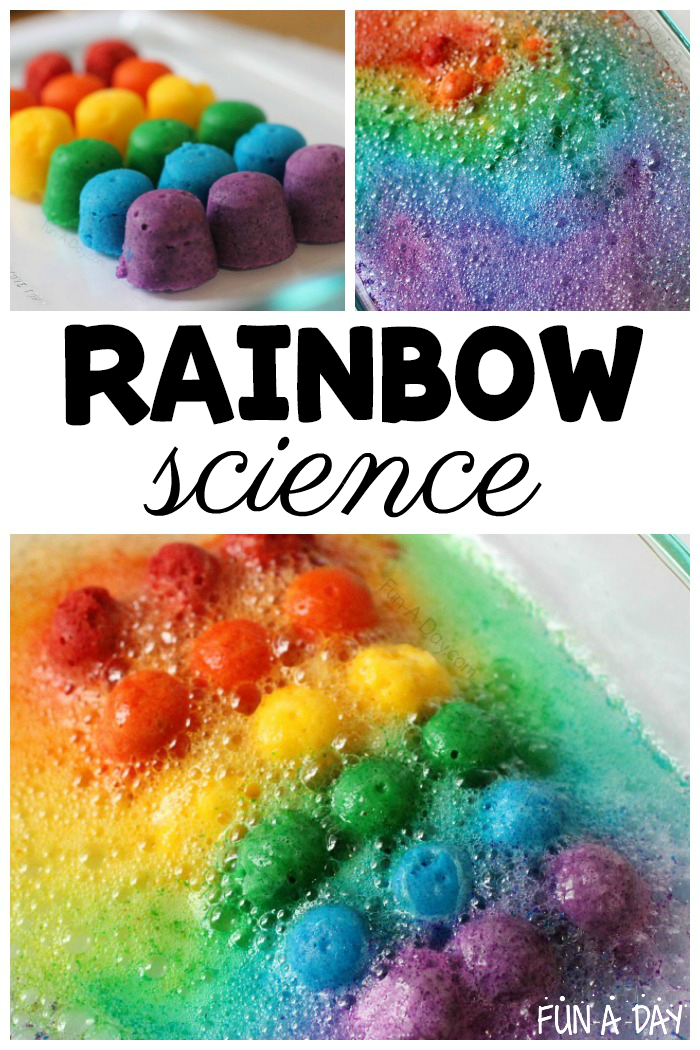
Related: St. Patrick’s Day Activities for Preschool
Kids are natural scientists. They ask lots of questions (as I’m sure you already know), and their innate curiosity has them reaching out and exploring the world around them.
Many children also seem to have a love of fizzing science experiments, for using their senses to explore, and a huge interest in colors.
If you know any children like this, they are going to love this fizzy rainbow science activity!
Rainbow Science That Fizzes and Smells Amazing
I know I love integrating rainbows into my preschool lesson plans for March, what about you? St. Patrick’s Day is a favorite holiday of mine, and I always associate it with rainbows.
Of course, this science activity would fit well within a variety of themes – science, rainbows, colors, etc.
Ever since we delved into ABC learning for kids with fizzing letters, I have wanted to try out a rainbow version. So here it is!
Rainbow Fizzies Video Tutorial
First, take a look at the video how-to:
Now let’s jump into the details!
Materials for a Rainbow Baking Soda and Vinegar Experiment
I happened to have all of these materials already on-hand both at home and in the classroom.
That’s because I have a tendency to grab items when they’re on sale and keep them in my “stash”. Please tell me I’m not the only one who does this?
If you don’t have the exact same things listed below, that’s okay. See if you can borrow some ice cube trays from a teaching buddy.
You don’t need both the squeeze bottles AND the eye droppers if you don’t have both. But they are definitely something I suggest having as part of your sensory and science materials if possible.
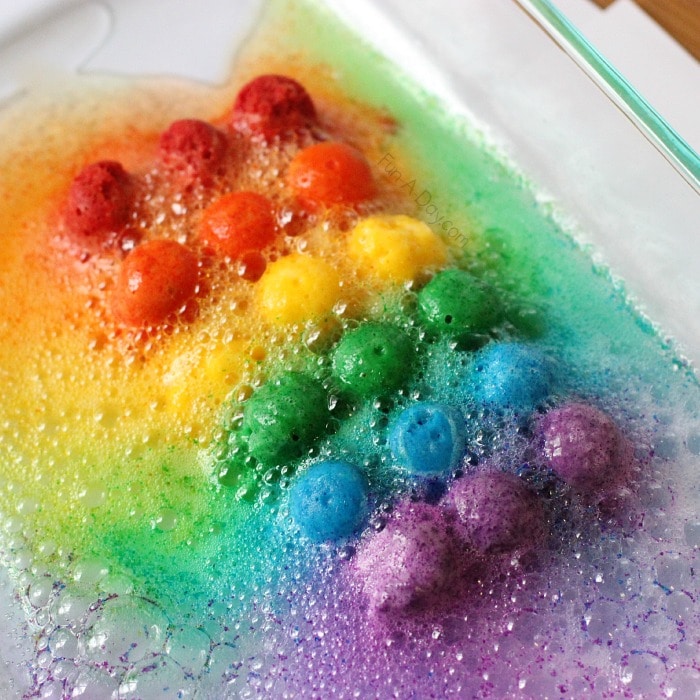
Baking soda
Jell-O in every color of the rainbow (well, except indigo)
Water
Ice cube trays
Vinegar
Food coloring or liquid watercolors
How to Make a Rainbow Science Invitation
Start out by making the scented baking soda “ice” cubes. For each of the colors (red, orange, yellow, green, blue, purple), I used the following “recipe”:
- 3/4 cup baking soda
- 2 tablespoons Jell-O powder
- 1/4 cup water
- Food coloring (optional)
First, combine the baking soda and Jell-O powder in a bowl, and then add the water and mix.
To make the colors brighter, add a few drops of food coloring or liquid watercolors to the water before pouring it in.
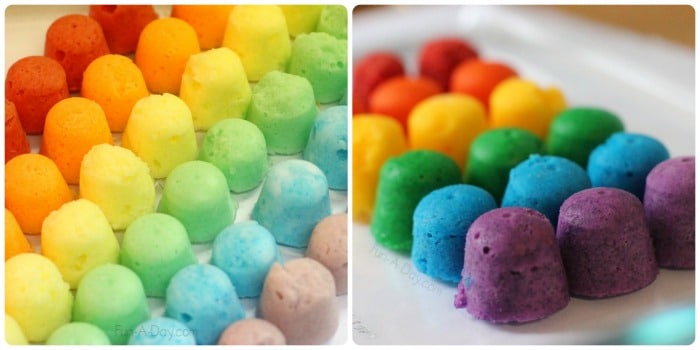
You can check out the picture above for a comparison of this rainbow science activity done with just Jell-O, as well as one done with added liquid watercolors.
If you are doing this science activity with young children who might still put things in their mouths, I’d suggest leaving out the liquid watercolors (use food coloring instead or just leave it a little less colorful).
You will have a somewhat pasty mixture, so don’t be alarmed that it’s not a liquid. If it’s too thin it won’t set correctly.
Then use a spoon to add the mixture to the ice cube tray. I found that the above recipe gave me enough to fill one ice cube tray per color.
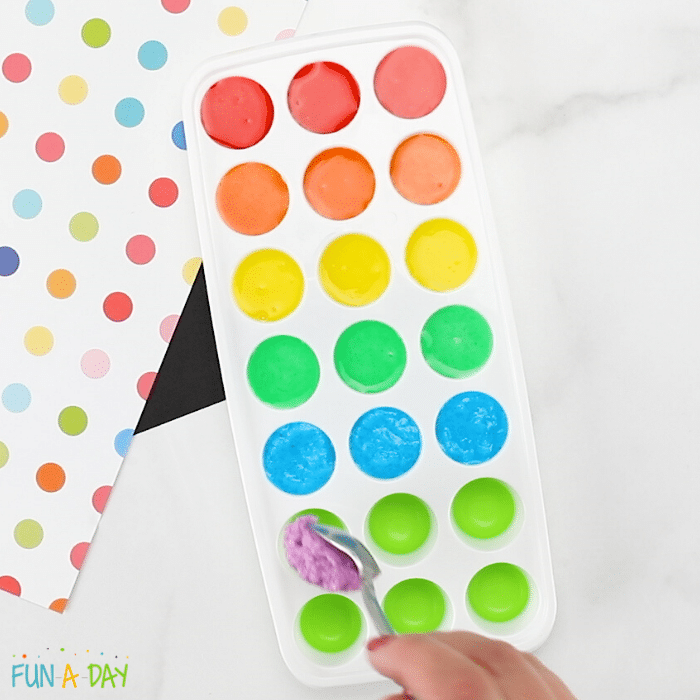
Related: Learning Shapes and Colors with Rainbow Rocks
If needed, tap the ice cube tray on your counter to ensure the mixture settles into the tray evenly.
Place the ice cube trays in the freezer.
Once they’re frozen through, remove from the freezer and get the rainbow science going immediately.
I’d suggest arranging the cubes in rainbow order. But you can also use just a couple of colors to experiment with color mixing.
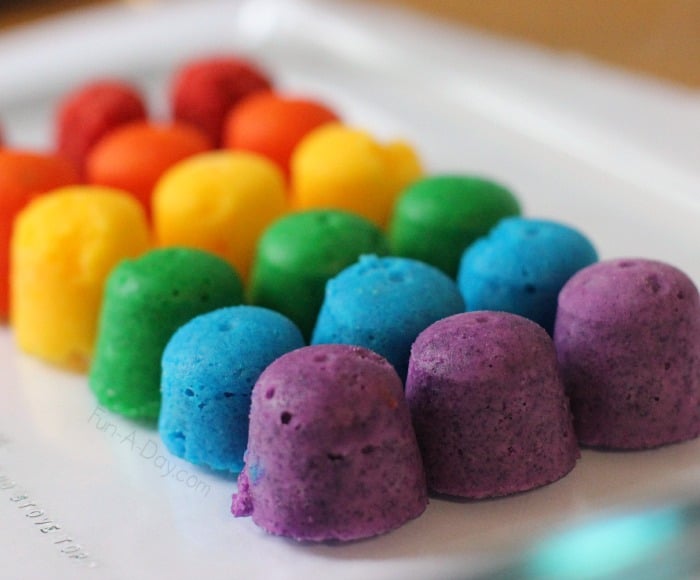
How the Kids Interact with the Rainbow Science Set-Up
Now it’s time to bring on the condiment bottles and eye droppers filled with vinegar! Let the children pour and squeeze as they sit fit.
Be sure to listen closely as they make observations about what they’re seeing. Ask open-ended questions to really get the children thinking.
Encourage the children to experiment to find out the answers to their questions along the way.
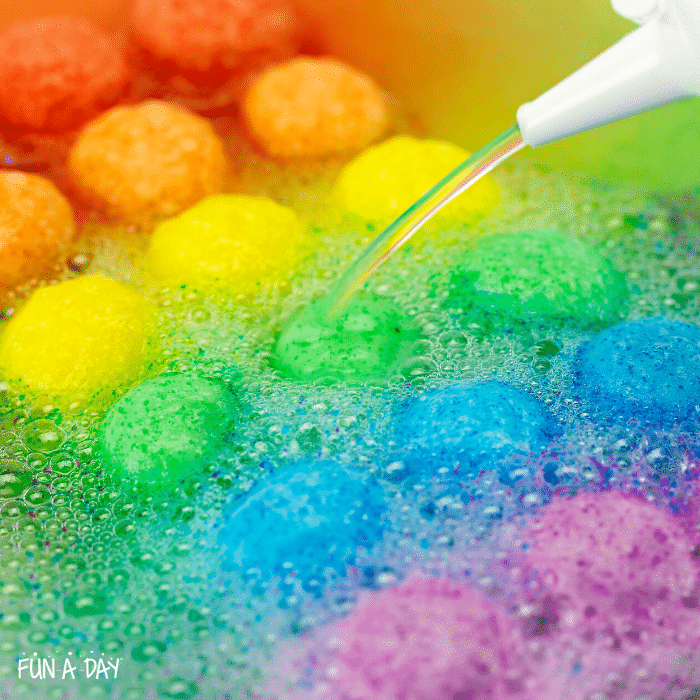
Related: Rainbow Glitter Jars
Over the years, I’ve done this experiment a few times with kids at school and at home. Each and every time, the kids have asked for “more of that cool rainbow science!”
Here are some of the comments and questions I’ve heard:
- “I can hear it fizzing! Can you hear it fizzing? Hey, what’s making the fizzing sound?”
- “I can smell the vinegar right here [putting nose right by the bowl of vinegar], but I can’t smell it once it’s all mixed up there [pointing to the pan with the experiment in it].”
- “It feels all cold and squishy now!”
- “Why’s it all turning brown? Is it supposed to turn brown when all the colors are together like that?”
- “Hey, I need a new pan please. With lots of vinegar. And a towel probably. I’m going to just use some of the colors. Maybe it won’t turn brown this time.”
What Learning Takes Place with the Rainbow Science Activity?
This rainbow science experiment allows for an amazing amount of learning (for a variety of age groups)!
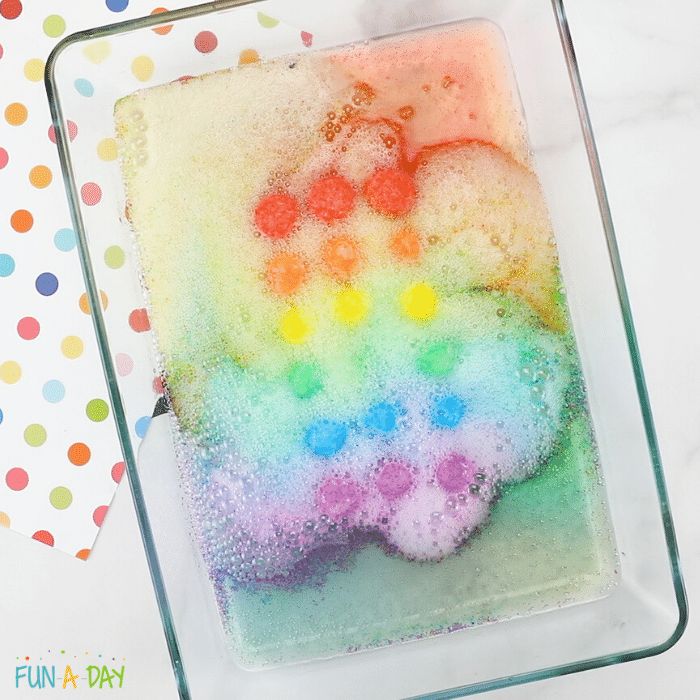
Related: Spring Messy Play Activities
Here are some of the topics I’ve discussed with preschoolers and elementary-aged children:
- Colors – tons of color identification, along with a discussion of the order of colors in a rainbow
- Color mixing – put just two colors into a pan and let the children see what happens when the colors dissolve and mix together
- The physics of rainbows – while this rainbow science experiment doesn’t delve directly into light and wavelengths, the question “why are the colors in the rainbow always in the same order?” may arise and lead to a great opportunity to discuss this (and plan for further science experiments)
- Chemical reactions – when baking soda and vinegar react, they create the gas carbon dioxide (which makes the bubbling and fizzing)
- Endothermic reactions – when baking soda and vinegar react, the temperature lowers
- Tons of sensory exploration – seeing, hearing, smelling, and touching! It’s a taste-safe experiment so there could be tasting, as well but it wouldn’t taste all the great!
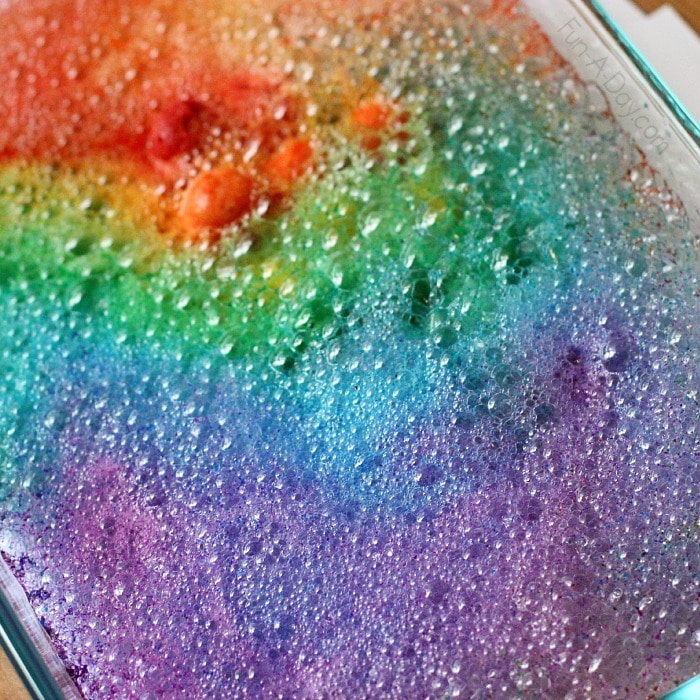
Related: “I See a Rainbow” Preschool Color Activity
Would your children enjoy our little rainbow science experiment? If you try it, I’d love to hear about how it goes!!
Preschool Lesson Plans You Should Check Out
Save time and get right to the playful learning with our printable lesson plan sets. Each set includes book suggestions, printable plans, over 30 learning activities (whole group, small group, and centers) related to the theme, and corresponding printables.
You can also find us on Teachers Pay Teachers
Even More Rainbow Activities for Kids
Click on the links below if you’re looking for more rainbow-themed ideas for preschoolers. Based on my experiences, elementary-aged children will get a kick out of them too!
Rainbow Letter Formation Sticky Wall by Still Playing School
Language Activities for Preschoolers: Rainbow Climb by Growing Book by Book
Inventing Their Own Songs to Encourage Creativity by Capri + 3
Rainbow Domino Game by Rainy Day Mum
Rainbow Patterns with Blocks by Fun Learning for Kids
Preschool Engineering with Rainbows by Natural Beach Living
Design a Rainbow Technology Connection by The Educators’ Spin On It
Disappearing Rainbow Colors by No Stress Homeschooling
Rainbow Ice and Salt Experiment for Preschool by Powerful Mothering
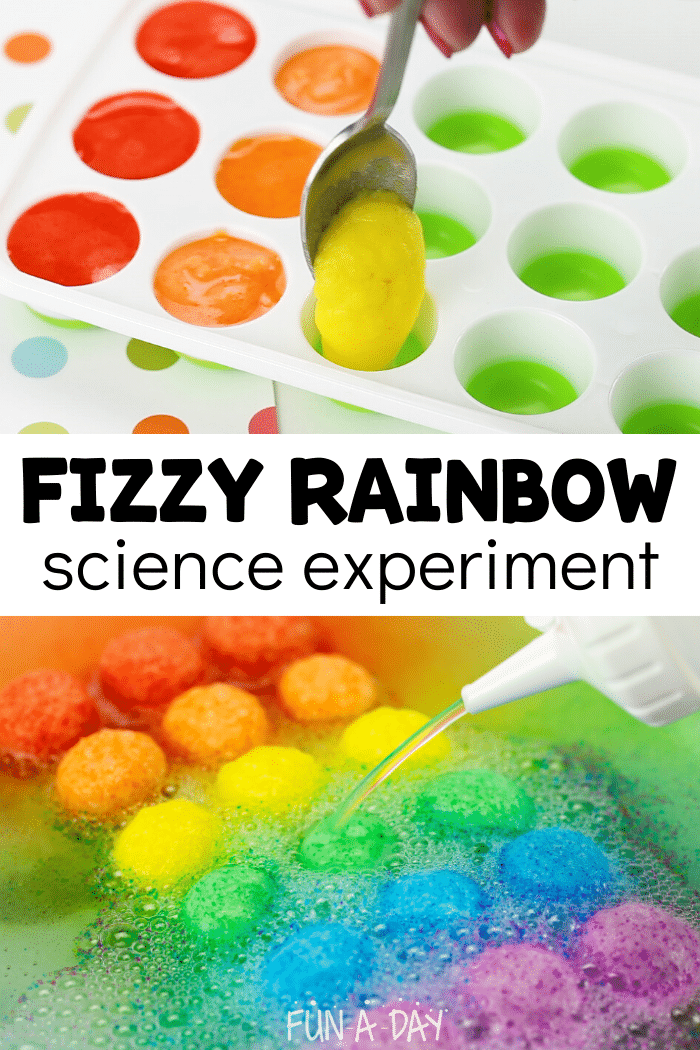
Originally published March 4, 2015. Updated with more pictures and a video.
The post Super Fun and Engaging Scented Rainbow Science for Preschoolers appeared first on Fun-A-Day!.


